11 Big Fat Pregnancy Myths
Intro
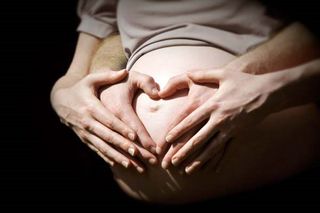
There is, arguably, more superstition surrounding pregnancy than any other so-called "medical condition." To separate fact from fiction, we examined the science behind the hearsay.
Pregnancy lasts nine months.
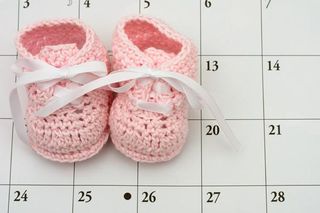
"It's actually more like nine-and-a-half months," said Dr. Joanne Stone, an obstetrician at Mount Sinai School of Medicine in New York City and co-author of "Pregnancy for Dummies" (For Dummies, 2009).
To make matters more confusing, doctors typically measure pregnancy's length as 40 weeks, counting from a woman's last period. Women usually become fertile 10 to 16 days after their period starts, so from this method of counting, the first two weeks of every pregnancy take place before a woman has conceived.
When you have sex determines the gender of your baby.
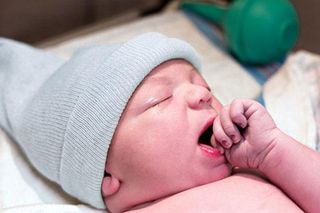
Dads-to-be have two types of sperm: those that make baby boys and those that make baby girls. Some say that the body of a mom-to-be is more hospitable to boy sperm or girl sperm during certain times in her cycle. And so, the theories go, when a couple has sex can determine whether they conceive a Junior or a Bubette.
While a few small studies have supported timing methods for sex selection, larger, more recent studies have failed to find any correlation between the day within the fertile window a couple has sex and the gender of the baby, explained Dr. Rachel Vreeman, co-author of "Don't Swallow Your Gum! Myths, Half-Truths, and Outright Lies about Your Body and Health" (St. Martin's Griffin, 2009).
The only way you can reliably choose the sex of your baby is with the help of technology.
You can predict the sex of your baby without technology.

Time to break it to grandma: Basketball-shaped bellies do not forecast boys. In a study of 104 women, published in the journal Birth in 1999, no correlations were found between a pregnant belly's size or shape and the baby's gender.
Similarly, predictions using the Chinese lunar calendar, the fetal heart rate and the Drano test (where the woman's urine is mixed with the de-clogging liquid and the resulting color allegedly reveals the baby's gender) were examined by physicians in Vancouver in 1999. None of them were reliable.
Neither is women's intuition dependably accurate, according to a 1996 article in the Journal of Reproductive Medicine. Of 110 women who professed having a strong sense of the baby's gender, roughly half were right the same number expected to be right if they were just guessing.
In all, scientists have found most folklore-based methods of predicting a baby's sex have the same odds as flipping a coin. "And 50/50 odds are not that bad," Vreeman said.
There may be a case for the predictive value of extreme morning sickness. Excessive, unrelenting morning sickness also known as hyperemesis gravidarum is slightly more correlated with having girls, Vreeman said.
Twins skip a generation.

Fraternal twins do run in families, due to a gene that can make a woman more likely to release multiple eggs during ovulation. But the hyper-ovulation gene doesn't leapfrog over certain generations. It is passed on from parent to child just like all genes are.
Evidence shows that identical twins, however, occur at random, rather than running in families. If there are many sets of carbon-copies in your family line, "it is probably just a coincidence," Vreeman told MyHealthNewsDaily.
Breastfeeding makes your breasts sag.
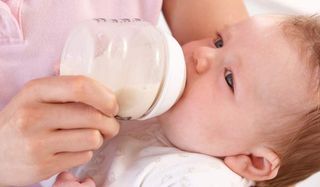
While infants certainly drain a lactating breast, their hunger doesn't cause long-term changes in breast firmness. Scientists have confirmed breastfeeding does not contribute to breast ptosis (the scientific name for saggy breasts).
However, multiple pregnancies, smoking and simply getting older have been correlated with droopier cleavage, according to a study of 132 women published in the Annals of Plastic Surgery in May.
The mom-to-be is the only one going through hormonal changes.

She's not alone: Dad's dealing with hormone shifts, too.
A study published in the journal Evolution and Human Behavior in 2000 found that over the course of his mate's pregnancy, an expectant father's testosterone levels go down and his prolactin levels go up. Researchers think this adjustment may help prime dudes to play daddy.
Your body shape will never be the same again.

"With exercise and diet, it certainly is possible to get back in the shape you were in before getting pregnant," Stone said, adding that this is easiest for people who were quite fit before conceiving.
People tend to forget that the body changes with age, with or without a pregnancy, Stone told MyHealthNewsDaily. So before blaming your saddlebags on your offspring, try counting the candles on your next birthday cake.
Pregnancy makes your feet grow.
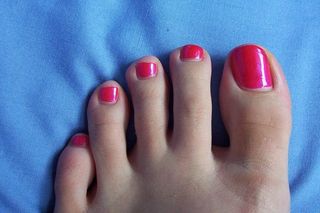
While most women experience some swelling in their calves, ankles and feet during pregnancy, many can fit back into their favorite heels at some point postpartum.
But this one isn't a complete myth: Some women permanently go up a half-size over the course of a pregnancy and possibly even another half-size with each subsequent pregnancy.
"Hopefully, they're not having ten kids," Stone laughed.
Drinking any alcohol during pregnancy will hurt your baby.

While binge drinking during pregnancy can cause severe problems, recent studies of thousands of women in the United Kingdom and Australia have confirmed earlier research suggesting that light to moderate drinking usually defined as one drink a week to one small drink most days may not be harmful.
Drinking during pregnancy is more culturally acceptable in Europe and Australia, where pregnant woman imbibe more openly than in the United States. But many physicians in the United States, such as Dr. Michael Broder, author of "Panic-Free Pregnancy" (Perigee Trade, 2004), also quietly allow their patients to have the occasional alcoholic drink particularly after the first trimester.
"Morning" sickness only happens in the morning.
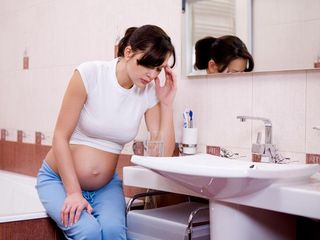
If only this were true! Thought to be caused by shifting hormones, morning sickness can strike (and often does) at any point in the day.
And it's not confined to the first trimester, as many believe, Stone said. "It can last up to 16 weeks."
Sign up for the Live Science daily newsletter now
Get the world’s most fascinating discoveries delivered straight to your inbox.
Robin Nixon is a former staff writer for Live Science. Robin graduated from Columbia University with a BA in Neuroscience and Behavior and pursued a PhD in Neural Science from New York University before shifting gears to travel and write. She worked in Indonesia, Cambodia, Jordan, Iraq and Sudan, for companies doing development work before returning to the U.S. and taking journalism classes at Harvard. She worked as a health and science journalist covering breakthroughs in neuroscience, medicine, and psychology for the lay public, and is the author of "Allergy-Free Kids; The Science-based Approach To Preventing Food Allergies," (Harper Collins, 2017). She will attend the Yale Writer’s Workshop in summer 2023.
